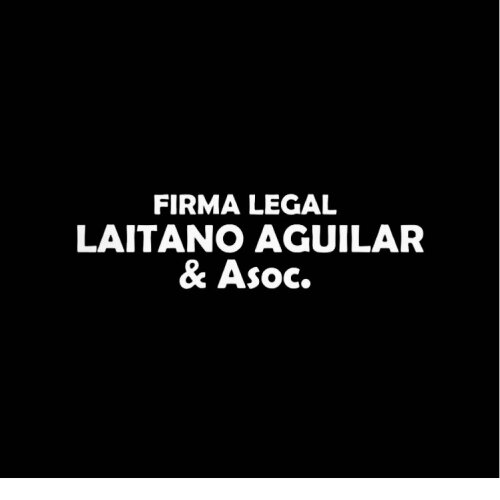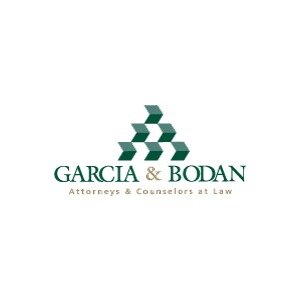Best Tax Increment Financing Lawyers in Honduras
Share your needs with us, get contacted by law firms.
Free. Takes 2 min.
Or refine your search by selecting a city:
List of the best lawyers in Honduras
About Tax Increment Financing Law in Honduras
Tax Increment Financing (TIF) in Honduras is a development financing tool that allows municipalities to promote economic development and urban growth. Through this mechanism, the government can fund infrastructure projects by using the future tax revenues that are expected to be generated from the increase in property values within a designated TIF district. This form of financing is particularly intended to stimulate private investments in areas that might otherwise be neglected, creating a ripple effect of social and economic benefits throughout the community.
Why You May Need a Lawyer
Engaging a lawyer in matters related to Tax Increment Financing can be crucial for several reasons:
- Navigating Complex Regulations: TIF involves an understanding of intricate financial and legal frameworks. A lawyer can help decipher these complexities.
- Project Feasibility Analysis: Legal professionals can assess whether a proposed project is suitable for TIF and evaluate potential risks.
- Drafting & Negotiation: Contracts and agreements need to be meticulously drafted and negotiated. Lawyers ensure these documents protect your interests.
- Compliance & Approvals: Securing necessary permits and ensuring compliance with local laws are legally intensive processes where a lawyer can be beneficial.
Local Laws Overview
Honduras's legal framework regarding Tax Increment Financing aligns with municipal laws and national development policies. Key elements of these laws include:
- The establishment of TIF districts must align with both local city plans and national development strategies.
- Transparency and accountability in the use of TIF funds are mandatory to ensure ethical standards and the protection of public interest.
- Projects funded through TIF must demonstrate clear public benefits, including job creation, housing improvements, and infrastructure enhancements.
- Tax revenues generated within the TIF district must be used strategically to ensure the long-term viability and sustainability of the district.
Frequently Asked Questions
1. What is Tax Increment Financing?
Tax Increment Financing is a public financing method that municipalities use to subsidize community improvement projects, anticipating the future increases in property tax revenues due to these improvements.
2. How is a TIF district created in Honduras?
A TIF district is typically proposed by a municipal authority and approved through local council votes and relevant government departments to ensure alignment with broader developmental objectives.
3. Who finances the initial development in a TIF district?
The initial financing generally comes from municipal bonds or other funding sources. The anticipated increase in tax revenue repays these costs over time.
4. Are there any risks associated with Tax Increment Financing?
Yes, if the projected increase in property values and tax revenues does not materialize, it could lead to funding shortfalls. Hence, feasibility studies are essential.
5. Can TIF funds be used for any type of project?
No, TIF funds are specifically targeted toward projects that will contribute to economic growth and provide significant public benefits.
6. How does TIF benefit local communities?
TIF can help improve infrastructure, create jobs, and stimulate private sector investment, thereby fostering overall economic growth in the community.
7. Are there reporting requirements for TIF districts?
Yes, strict reporting and transparency regulations exist to ensure that funds are used appropriately and effectively.
8. How long does a TIF district last?
The lifespan of a TIF district can vary, but it typically ranges from 20 to 30 years, or until the financing is repaid.
9. Can residents be displaced due to TIF projects?
While TIF is designed to minimize negative impacts, legal provisions exist to address any displacement issues, often requiring fair compensation and relocation support.
10. Is legal representation mandatory for engaging in TIF projects?
While not mandatory, having legal representation is highly recommended to ensure compliance with laws and safeguard interests.
Additional Resources
For those seeking further information on Tax Increment Financing in Honduras, the following resources may be helpful:
- Honduran Ministry of Finance: Provides guidelines and regulations related to public financing, including TIF.
- Municipal Development Institute: Offers insights on urban development plans and the role of TIF.
- Local City Councils: They can provide information on specific TIF districts and related projects.
- Chambers of Commerce: Often provide consultation on how businesses can leverage TIF for growth.
Next Steps
If you require legal assistance with Tax Increment Financing, consider the following steps:
- Consult with a specialized attorney: Engage a lawyer experienced in municipal finance and TIF.
- Review local statutes: Ensure you are informed about the specific legal requirements in your area.
- Conduct a feasibility study: Determine the viability of your project within a TIF framework.
- Engage with local authorities: Discuss your project with city officials to understand the procedural requirements and gain support.
By taking these steps, you can better navigate the legal landscapes surrounding Tax Increment Financing in Honduras and make informed decisions for your development projects.
Lawzana helps you find the best lawyers and law firms in Honduras through a curated and pre-screened list of qualified legal professionals. Our platform offers rankings and detailed profiles of attorneys and law firms, allowing you to compare based on practice areas, including Tax Increment Financing, experience, and client feedback.
Each profile includes a description of the firm's areas of practice, client reviews, team members and partners, year of establishment, spoken languages, office locations, contact information, social media presence, and any published articles or resources. Most firms on our platform speak English and are experienced in both local and international legal matters.
Get a quote from top-rated law firms in Honduras — quickly, securely, and without unnecessary hassle.
Disclaimer:
The information provided on this page is for general informational purposes only and does not constitute legal advice. While we strive to ensure the accuracy and relevance of the content, legal information may change over time, and interpretations of the law can vary. You should always consult with a qualified legal professional for advice specific to your situation.
We disclaim all liability for actions taken or not taken based on the content of this page. If you believe any information is incorrect or outdated, please contact us, and we will review and update it where appropriate.
Browse tax increment financing law firms by city in Honduras
Refine your search by selecting a city.

















